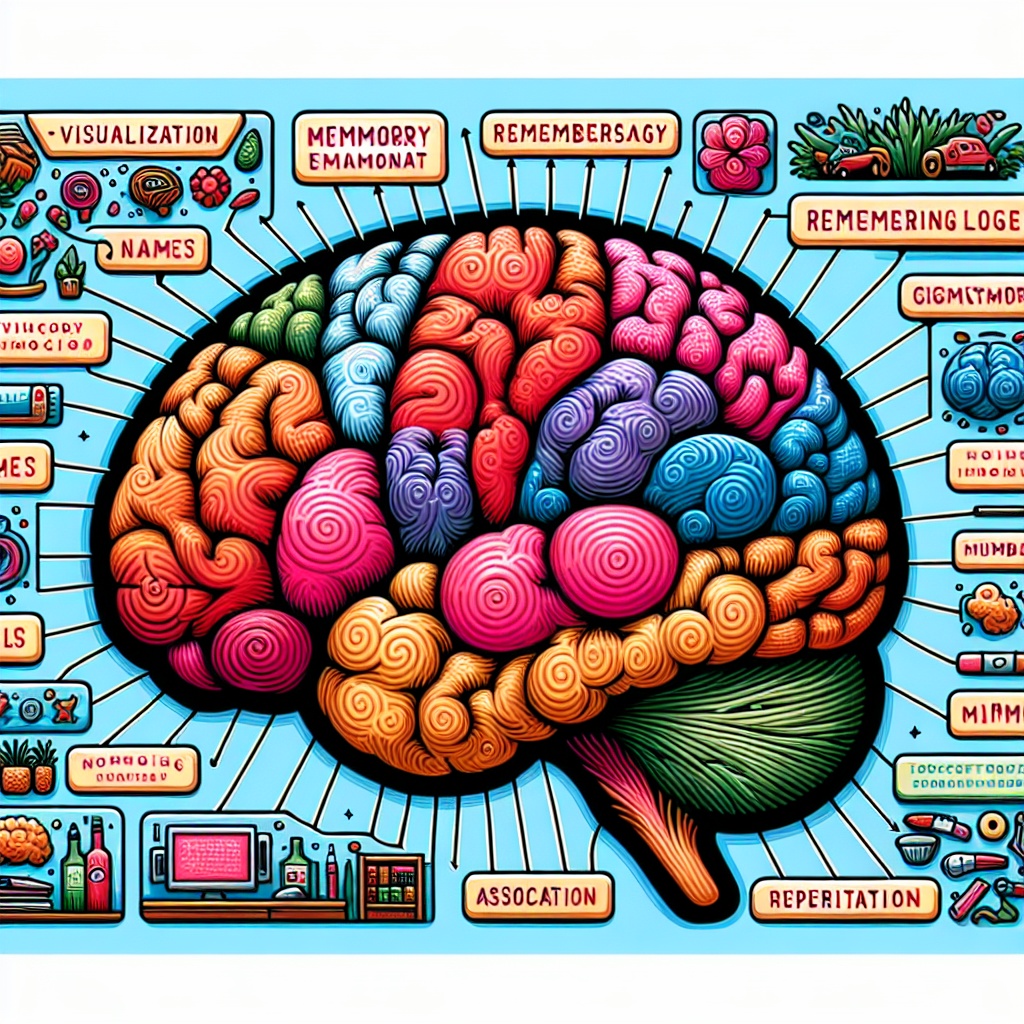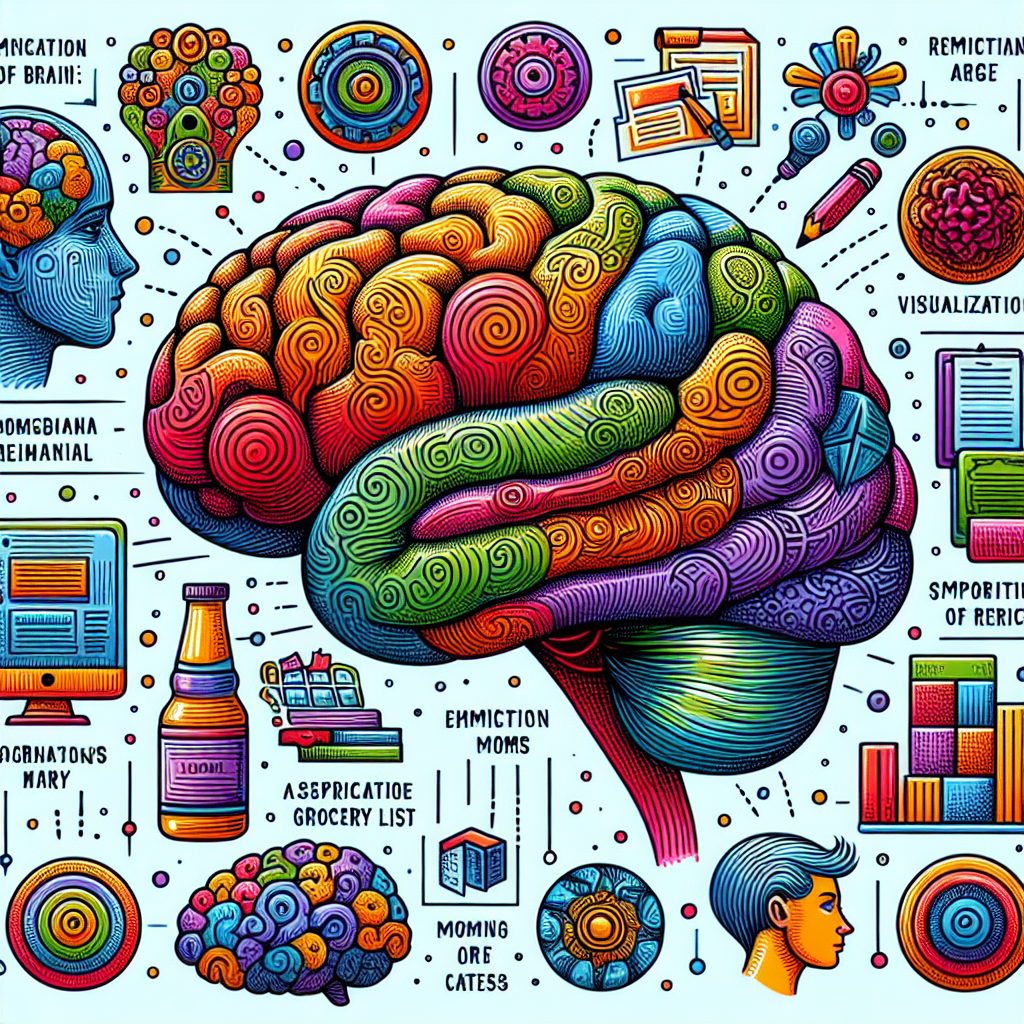How Can Memory Techniques Be Applied To Everyday Life?
Imagine this: a life where you could easily remember important dates, managing tasks like shopping or work assignments become effortless, and retaining new knowledge feels like second nature. That’s the goal of this article “How Can Memory Techniques Be Applied To Everyday Life?” It sheds light on the fascinating world of memory techniques, illustrating how they can elevate and streamline common aspects of your day-to-day life. A world where forgetfulness is a thing of the past is within your grasp, all thanks to the power of sharpening your memory. Now, isn’t that an enlightening thought?

Understanding the Importance of Memory in Everyday Life
Memory, the mental capacity to encode, store, and retrieve information, is a crucial aspect of your everyday life. It helps guide your actions, shape your behavior, and allows you to interact proficiently in everyday situations.
Significance of Remembering Daily Tasks
Just think about your daily routine. You wake up, brush your teeth, have breakfast, and rush off to work, school, or any other engagements. Each of these tasks involves a complex interplay of your cognitive processes, particularly memory. Remembering daily tasks and essential details, such as your work schedule, the location of important items, or significant dates, enables you to maintain a smooth flow in your daily life.
Outcome of Improved Memory
Enhancing your memory isn’t just about achieving high scores on memory-based games or impressing friends with a neat party trick. It can be the deciding factor between a highly productive day and an average or disappointing one. An improved memory can provide you with greater mental clarity, boost your professional performance, and contribute to a better personal life.
Defining Memory Techniques
Memory techniques are strategic methods or tools you can use to help improve your ability to remember information.
Meaning of Memory Techniques
Memory techniques go beyond mere repetition or overlearning. They serve as the foundation for a more sophisticated, elaborate process that enables you to store and recall information more effectively and efficiently.
Different Types of Memory Techniques
There are several types of memory techniques that cater to different learning styles and preferences. These range from mnemonic devices, such as visual imagery, rhymes, or association, to the loci method, flashcards, and the spaced repetition method among others. Each of these techniques can lend a unique dimension to your memory skills.
Memory Techniques Used in Education
Many academic success stories are often underpinned by the effective use of memory techniques.
Mnemonic Devices in Learning
Mnemonic devices provide creative and engaging ways to remember facts, lists, names, formulas, and more. They simplify complex information, making it more digestible and easier to recall. An example of a mnemonic device that you may use in everyday life is remembering the direction of the compass by using the acronym ‘Never Eat Shredded Wheat’ – representing North, East, South, and West.
Flashcards, Repetition and Other Techniques
Flashcards are an easy and portable way of breaking down information into manageable chunks. When coupled with the principle of spaced repetition – revisiting information at varying intervals – it can significantly enhance recall. Repetition, summarizing, and note-taking are other beneficial memory techniques used widely in education to solidify learning.
Effect of Active Recall on Memory
Active recall, a method where you actively try to remember information without looking at the source, can also have powerful effects on memory. It fetches information from your memory, strengthening your memory traces, and making future retrieval easier.

Application of Memory Techniques in Work Settings
In a professional capacity, too, memory techniques can be a game-changer.
Making Use of Memory Techniques for Professional Growth
Impress your boss by remembering project specifics, get a better grip on data analysis by memorizing key metrics, or keep track of customer preferences to provide a personalized experience. Memory techniques can help you excel in various aspects of your job.
Memory Techniques for Improving Productivity
By improving your ability to remember and recall, you may also find that you are much more productive. You can waste less time cross-checking details, spend less energy worrying about forgetting essential things, and instead channel your resources to innovative and problem-solving tasks.
Improving Social Life Through Memory Techniques
Remembering details about people and important events can enhance your interpersonal skills.
Remembering Names and Personal Details
In social situations, remembering names, personal details, or previous conversations is not only a sign of respect but also makes people feel valued and important. This can help forge stronger personal or professional relationships.
Improving Listening Skills via Memory Techniques
Memory techniques, especially those that promote active listening and caution against assuming or guessing, can improve your listening skills, making you a better communicator and friend.
Role of Memory Techniques in Health and Self-Care
ensuring your health and wellbeing partly relies on your memory.
Recalling Medication Schedules
Remembering to take your medicine on time, following the correct dosage, or adhering to certain dietary restrictions or workout routines requires a reliable memory. Write notes, use a pillbox with days of the week, or set reminders- these are uncomplicated memory techniques that can guide your self-care.
Remembering Fitness Routines
Similarly, if you regularly exercise, remembering the sequence and duration of your routines can help you maintain an efficient workout regimen.
Facilitating Household Errands with Memory Techniques
Even basic household errands can benefit from enhancing your memory.
Applying Memory Techniques in Budgeting
Budgeting involves recalling your income streams, planned expenses, debts, savings etc. Here, memory techniques like taking notes, visualizing, or tracking can assist you in effectively managing your finances.
Remembering Shopping Lists and Errands
The next time you go grocery shopping, try visualizing your shopping list or associating items with specific images or rooms in your house. It may surprise you how much you can remember without continually referring to your list.
Applying Memory Techniques for Entertainment
Even your leisure activities can be made more enriching by incorporating memory techniques.
Memory Techniques in Gaming
Whether you’re plotting strategies in a complex board game, remembering patterns in a quest video game, or memorizing decks in a card game, an improved memory can greatly enhance your gaming experience.
Remembering Film and Book Details
Remembering intricate plot details for that movie marathon or book club can significantly enhance your engagement and understanding of the material.
Combating Memory Loss with Memory Techniques
Memory techniques can play a vital role in maintaining and enhancing cognitive function, even in the face of aging or disease.
Improving Long-Term Memory
Regularly exercising your brain with memory-enhancing techniques can contribute to a robust long-term memory. This can keep your mind sharp, delay cognitive decline, and improve your quality of life.
Techniques to Support Memory Amid Aging
Some memory techniques that are particularly helpful against memory loss are the chunking technique, where you divide information into small, manageable units, or the storytelling technique, where you create a coherent narrative with the information to make it easier to remember.
Future Trends in Memory Techniques
The field of memory enhancement continues to evolve, influenced by technology and advancements in neuroscience.
Digital Applications for Memory Enhancement
With digitization touching every aspect of our lives, memory enhancement has not been left behind. There are plenty of apps that employ memory techniques and gamification to help improve memorization and brain function.
Influence of Neuroscience in Memory Techniques
Neuroscience research is also broadening our understanding of memory and providing us with insights to create more refined and effective memory techniques. The result is the potential for memory training methods that are deeply rooted in the intricacies of our brain’s functioning.
In conclusion, memory techniques offer insights into amplifying your cognitive abilities in all spheres of life. From fostering individual growth to enhancing work productivity and social connections, these techniques can catalyze a comprehensive personal improvement and a more vibrant engagement with life. So why not give them a try? Your brain might thank you!

